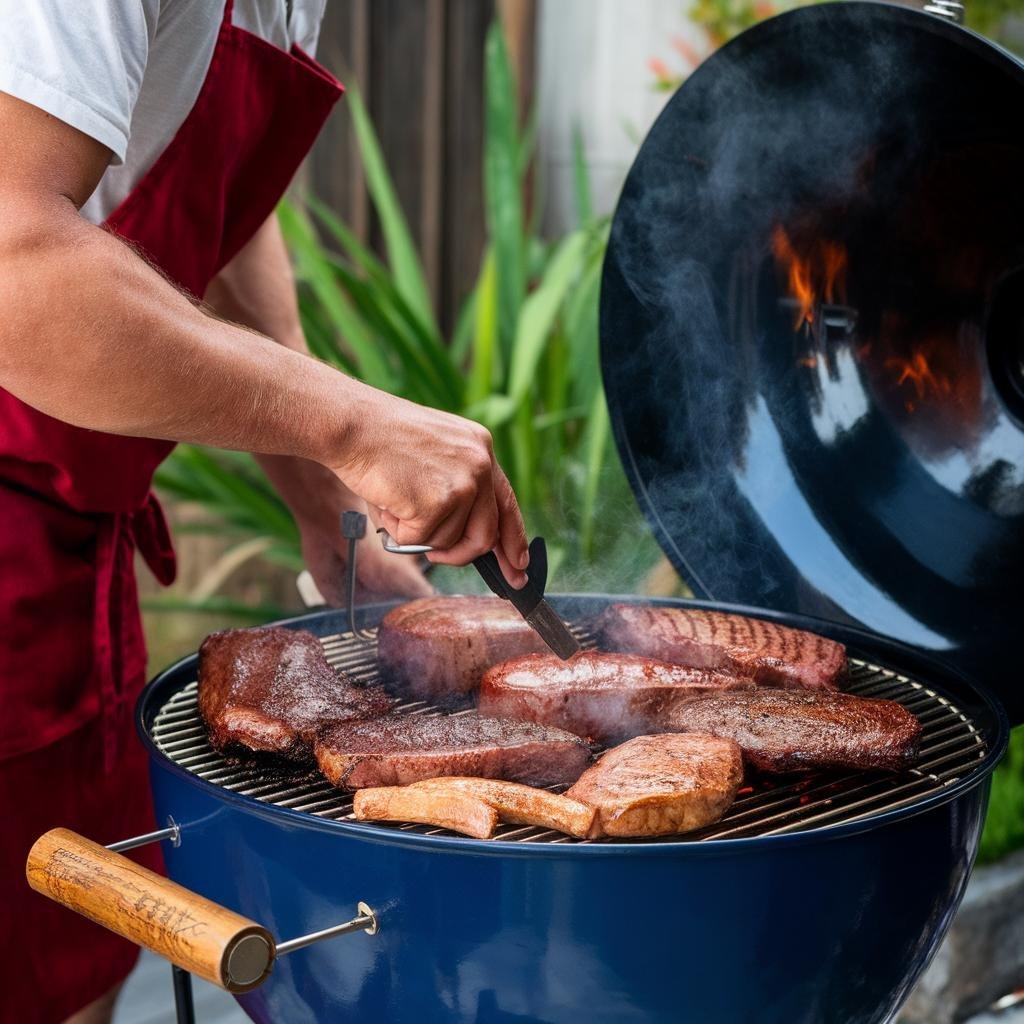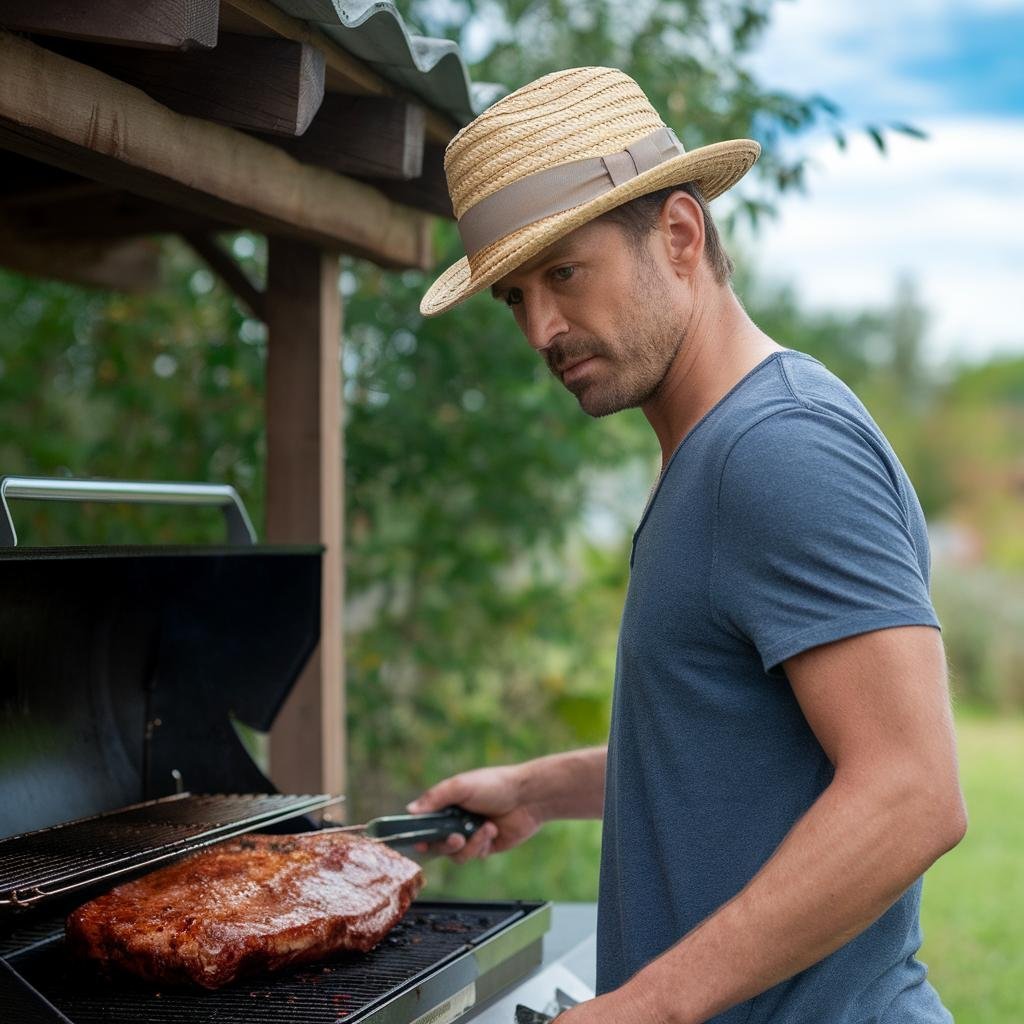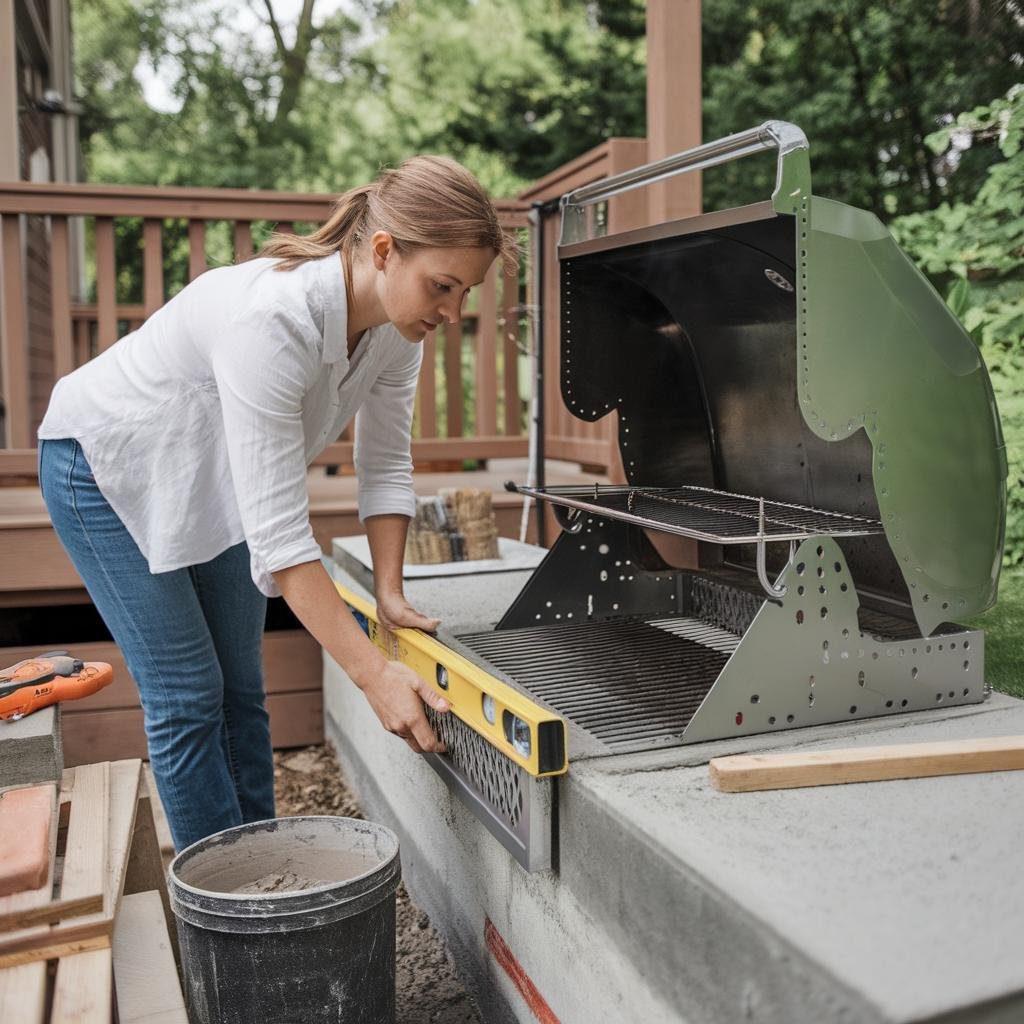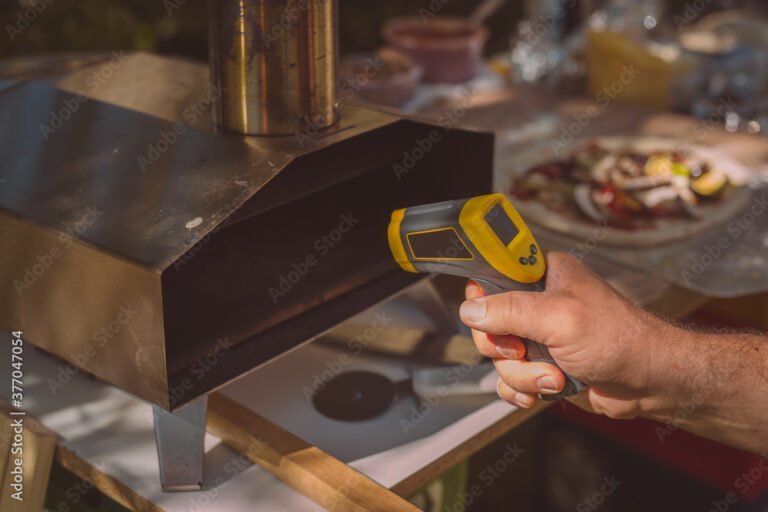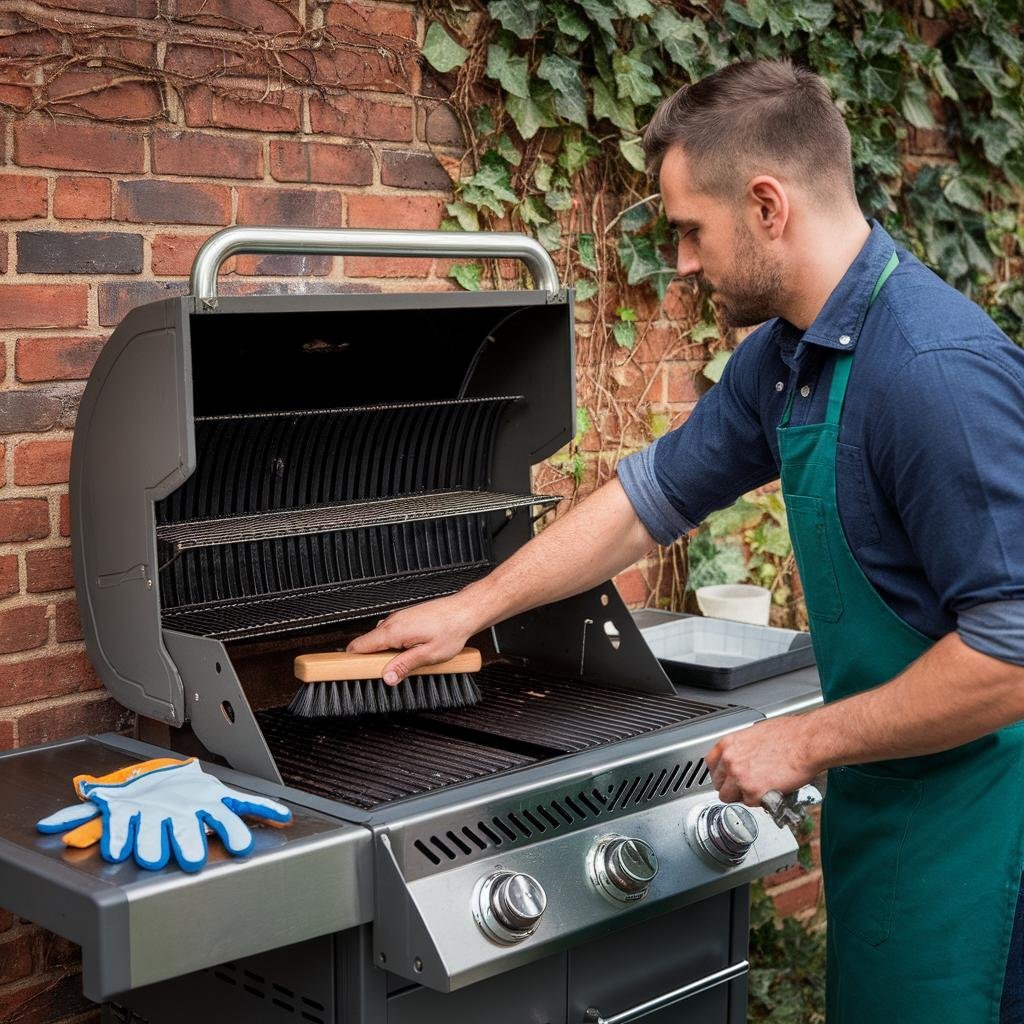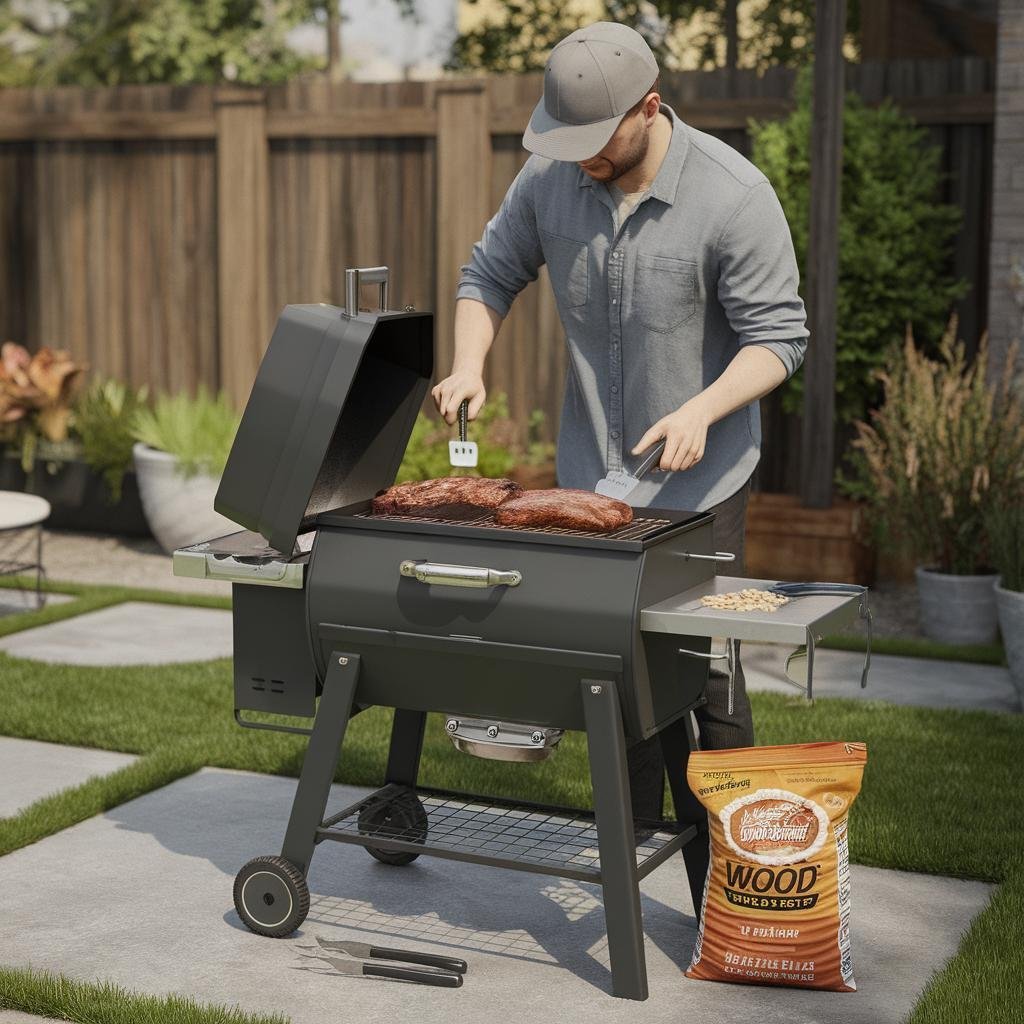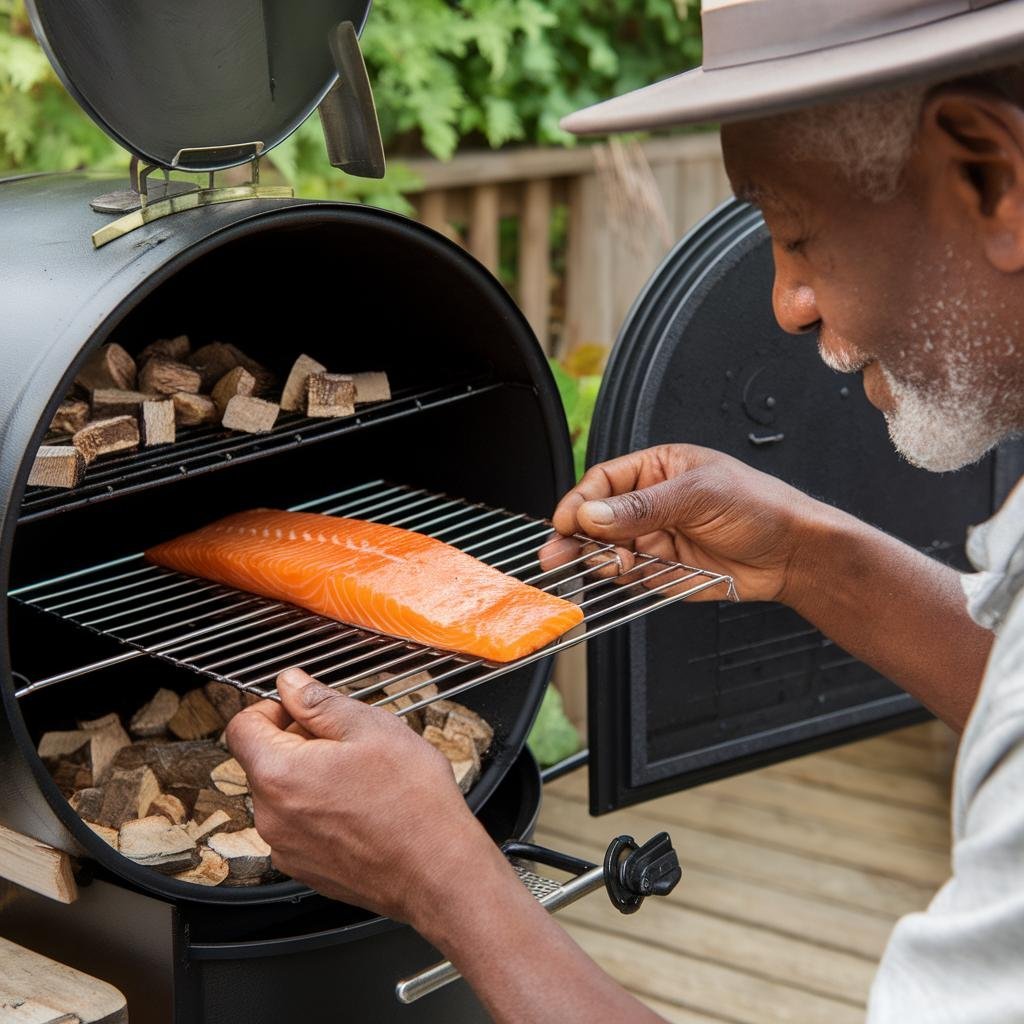Disclosure: This Post Contains Affiliate Links; We earn a commission on purchases.
Barbecue smoking is an art that requires patience, skill, and the right equipment. It’s a method of cooking food “low and slow” over a long period of time with the use of smoke, resulting in tender, flavorful meats and other dishes. If you’re new to barbecue smoking or looking to upgrade your current smoker, this guide is for you. We’ll cover everything you need to know to choose the right barbecue smoker, including factors to consider, types of smokers, and key features to compare.
Key Takeaways:
- Choosing the right barbecue smoker is crucial for achieving delicious smoked meats and dishes.
- Consider factors such as the type of fuel, size, and budget when selecting a smoker.
- There are various types of smokers available, including offset, vertical water, drum, pellet, electric, and charcoal smokers.
- Compare features such as temperature control, cooking capacity, construction quality, and additional features when making a decision.
- Research and read BBQ smoker reviews to gather insights and make an informed choice.
Types of Smokers
There are several types of smokers available on the market, each with its own advantages and disadvantages. Whether you’re a seasoned pitmaster or a beginner barbecue enthusiast, understanding the different types of smokers can help you choose the right one to suit your cooking style and preferences.
Offset Smokers
Offset smokers, also known as barrel smokers, feature a separate firebox attached to the main cooking chamber. This design allows for indirect heat and smoke to circulate around the food, resulting in flavorful and tender barbecue. Offset smokers are popular among barbecue purists for their traditional smoking experience and versatility. They can accommodate large quantities of food, making them a great choice for gatherings and events.
Vertical Water Smokers
Vertical water smokers, also known as bullet smokers, utilize a water pan to generate moist heat, creating an environment ideal for slow and steady cooking. These smokers are often recommended for beginners due to their ease of use and affordability. The water pan helps to regulate temperature and prevents the food from drying out, resulting in juicy and flavorful barbecue. Vertical water smokers are compact and portable, making them a convenient option for outdoor enthusiasts.
Drum Smokers
Drum smokers, also known as Ugly Drum Smokers (UDS), are simple and efficient smokers that can be made from a steel drum. These DIY-style smokers offer excellent heat retention and can reach high temperatures, making them suitable for a variety of cooking techniques, from low and slow smoking to high-heat grilling. Drum smokers are favored by barbecue enthusiasts who enjoy the challenge of building their own smoker and experimenting with different flavors and cooking methods.
Pellet Smokers
Pellet smokers use compressed wood pellets as fuel and offer precise temperature control, making them a favorite among both novice and experienced smokers. These smokers feature automated pellet feed systems that regulate temperature, allowing for consistent results. Pellet smokers impart a mild smoky flavor to the food and are known for producing tender and juicy barbecue. They are highly versatile and can be used for a wide range of cooking techniques, including smoking, grilling, baking, and roasting.
Electric Smokers
Electric smokers are the ultimate set-it-and-forget-it smokers, perfect for those who prefer convenience and ease of use. These smokers are powered by electricity and require minimal supervision. Electric smokers offer precise temperature control and eliminate the need for constant fuel monitoring. They are equipped with heating elements that generate consistent heat and produce flavorful results. Electric smokers are a popular choice for apartment dwellers and those who prefer a hassle-free smoking experience.
Charcoal Smokers
Charcoal smokers provide a traditional smoky flavor and are often more affordable than other options. These smokers use charcoal briquettes or lump charcoal as fuel, which burns slowly and imparts a rich and distinct smoky taste to the food. Charcoal smokers are versatile and allow for a wide range of cooking techniques, from low and slow smoking to high-heat grilling. They are favored by barbecue enthusiasts for their authenticity and the unique flavor profile they deliver.
Ultimately, the type of smoker you choose will depend on your personal preferences, cooking style, and level of experience. Consider factors such as flavor preference, ease of use, cooking capacity, and budget when making your decision. By selecting the right smoker, you can elevate your barbecue game and enjoy delicious and smoky meats, vegetables, and more.
| Type of Smoker | Advantages | Disadvantages |
|---|---|---|
| Offset Smokers | – Traditional smoky flavor – Versatility for different cooking techniques – Large cooking capacity | – Requires skill and experience for optimal use – Can be bulky and require more space |
| Vertical Water Smokers | – Affordable and beginner-friendly – Moist heat for juicy and flavorful results – Portable and compact | – Limited cooking capacity – May require frequent refilling of water pan |
| Drum Smokers | – Excellent heat retention – DIY customization and experimentation – Suitable for a variety of cooking techniques | – Can require more effort and skill for construction – May have limited temperature control |
| Pellet Smokers | – Precise temperature control – Versatility for smoking, grilling, and more – Automated feeding system for convenience | – Higher initial cost – May produce a milder smoky flavor |
| Electric Smokers | – Easy to use with minimal supervision – Precise temperature control – Hassle-free smoking experience | – Requires electricity for operation – May lack the authentic smoky flavor |
| Charcoal Smokers | – Traditional smoky flavor – Affordable and readily available fuel – Versatile for different cooking techniques | – Requires constant monitoring of fuel and temperature – Can be slower to heat up and adjust temperatures |
Factors to Consider
When choosing a barbecue smoker, several factors come into play. It’s important to consider the space requirements, fuel options, ease of use, and budget considerations. Let’s take a closer look at each of these factors:
Space Requirements
Before purchasing a smoker, assess the outdoor space available to you. Consider whether you need a portable smoker for picnics and camping trips or a built-in smoker for a permanent setup in your backyard. Ensure that the smoker you choose fits comfortably in the designated space.
Fuel Options
Another vital factor to consider is the fuel options available for the smoker. Different types of fuel can create distinct flavors in your smoked meats and dishes. Choose between hardwood, charcoal, wood pellets, propane, or electricity based on your preference for taste and convenience.
Ease of Use
When it comes to barbecue smoking, ease of use is key. Look for a smoker that offers temperature control features, such as adjustable vents and intuitive controls, allowing you to maintain consistent heat levels throughout the smoking process. Consider the ease of maintenance as well, as some smokers may require more cleaning and upkeep than others.
Budget Considerations
Set a realistic budget for your smoker purchase. Smokers are available in a wide range of prices, from budget-friendly options to high-end models. Determine the maximum amount you’re willing to spend and find a smoker that fits within that budget. Remember, investing in a quality smoker can enhance your grilling experience and provide years of delicious smoked meals.
By considering these factors, you’ll be equipped to make an informed decision when selecting the perfect barbecue smoker that meets your space requirements, fuel preferences, ease of use, and budget considerations.
Features to Compare
When comparing different smokers, there are several features to consider. These features will help you determine which smoker is the best fit for your needs, ensuring a satisfying smoking experience. Take a closer look at the following key factors:
1. Temperature Control
The ability to control the temperature is crucial for achieving consistent and delicious results. Look for a smoker that offers precise temperature control, allowing you to adjust the heat according to your specific recipe or smoking technique. This ensures that your food is cooked to perfection, with tender meat and rich flavors.
2. Cooking Capacity
Cooking capacity is an important consideration, especially if you often host large gatherings or enjoy preparing meals in bulk. A smoker with ample cooking capacity will allow you to smoke a significant amount of food at once, saving you time and effort. Consider the size of the cooking chamber and the number of racks or shelves available to accommodate your desired cooking volume.
3. Construction Quality
The construction quality of a smoker directly affects its durability and longevity. Look for a smoker made from high-quality materials that can withstand the rigors of outdoor cooking. Stainless steel, cast iron, and heavy-duty steel are commonly used materials known for their strength and resistance to rust and corrosion. A well-built smoker will not only stand the test of time but also provide consistent cooking performance.
4. Additional Features
While temperature control, cooking capacity, and construction quality are essential, additional features can further enhance your smoking experience. Some smokers come with convenient features such as:
- Storage shelves: These provide extra space for utensils, wood chips, and other smoking accessories.
- Wheels for easy mobility: If you plan to move your smoker frequently, wheels can make transportation a breeze.
- Built-in thermometers: Integrated thermometers allow you to monitor the cooking temperature without the need for additional tools.
Consider which of these additional features would be most beneficial to you, based on your specific cooking style and preferences.
By comparing and evaluating these features, you can make an informed decision when selecting a smoker that suits your needs and preferences.
| Features to Compare | Criteria | Options |
|---|---|---|
| Temperature Control | Precision | Precise temperature control in increments |
| Thermostat | Digital, analog, or built-in thermometer | |
| Heat Source | Consistent distribution of heat | |
| Temperature Range | Wide range of temperatures for various cooking techniques | |
| Cooking Capacity | Cooking Chamber Size | Small, medium, or large cooking chambers |
| Racks or Shelves | Number and adjustability of racks or shelves | |
| Vertical or Horizontal Design | Space utilization and cooking flexibility | |
| Construction Quality | Material | High-quality materials such as stainless steel or heavy-duty steel |
| Sealing | Airtight seal to prevent heat and smoke leaks | |
| Heat Retention | Efficient insulation for consistent temperatures | |
| Additional Features | Storage | Shelves, hooks, or compartments for convenience |
| Mobility | Wheels or handles for easy transportation | |
| Monitoring | Built-in thermometers or temperature gauges |
Conclusion
Choosing the right barbecue smoker is a crucial decision for any barbecue enthusiast. Whether you prefer the rich flavor of hardwood, the convenience of electric smokers, or the traditional experience of charcoal smokers, there is a smoker out there to suit your grilling needs. By considering factors such as the type of fuel, the size of the smoker, and your budget, you can make an informed decision.
Researching and comparing different options, reading reviews, and considering your personal preferences are essential steps in finding the best BBQ smoker. Remember to take your time and weigh the pros and cons before making a final decision.
With the right barbecue smoker, you can elevate your grilling game and enjoy mouthwatering smoked meats and other dishes. Whether you’re hosting a backyard cookout or competing in a barbecue competition, a high-quality smoker will be your secret weapon. So, dive into the world of barbecue smoking, and get ready to impress your friends and family with your grilling skills!
References

Ryan Conlon is a BBQ enthusiast and inspired chef on a journey through the smoky, savory world of outdoor cooking. Hailing from the heart of the Midwest, Ryan’s passion for grilling ignited during his early years, where family gatherings often revolved around the sizzle of the grill and the aroma of seasoned meats.

